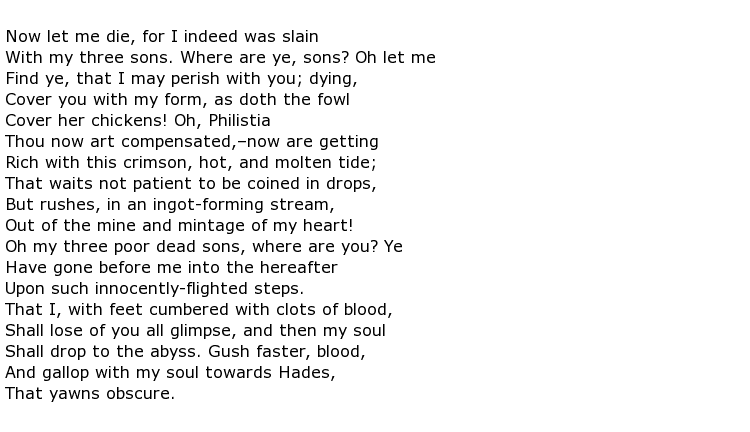 Charles Heavysege is considered one of the greatest Canadian writers of plays and poetry yet he did not emigrate to that country until he was in his 30s. He also made his name there as a journalist, in Montreal. He was English-born and yet Canadian literature critics seem to have claimed him as one of their own. They considered him a serious poet, especially when considering the three-part verse drama called Saul. This was even considered to be the most significant piece of work of its kind since the days of William Shakespeare. Other work attracted less than complimentary comments though such as “unoriginal” and “ [he writes in] an overblown, rhetorical style”.
Charles Heavysege is considered one of the greatest Canadian writers of plays and poetry yet he did not emigrate to that country until he was in his 30s. He also made his name there as a journalist, in Montreal. He was English-born and yet Canadian literature critics seem to have claimed him as one of their own. They considered him a serious poet, especially when considering the three-part verse drama called Saul. This was even considered to be the most significant piece of work of its kind since the days of William Shakespeare. Other work attracted less than complimentary comments though such as “unoriginal” and “ [he writes in] an overblown, rhetorical style”.
He was born on the 2nd May 1816 in the West Yorkshire town of Huddersfield. Little is recorded about Heavysege’s early life but it seems he came from a simple, working class background and appears to have taught himself to write. He used such weighty references as The Bible and the works of Shakespeare and Milton when formulating his own writing style.
At the age of 37 he decided to emigrate to Canada and took up employment there as a wood carver. His writing abilities soon earned him a place on the reporting staff of the Montreal Transcript and, later on, he joined the Montreal Daily Witness, eventually becoming city editor. Before leaving England he had the first edition of his six-part The Revolt of Tartarus published in London, in 1852. This was reissued in Montreal three years later, only this time it was significantly edited and published anonymously.
The same year he produced Sonnets and followed this with what was described as his greatest work (Saul) in 1857. This attracted the attention of the poet and critic Coventry Patmore, in England, and, on reading it in the publication The North British Review. he described it in possibly excessively glowing terms. He called it “indubitably the best poem ever written out of Great Britain” even though the writer was now in Canada. The fame of Charles Heavysege rapidly spread and he also got good reviews in the New York Evening Post and the Atlantic Monthly.
He was busy over the next ten years or so including a tribute to Edgar Alan Poe’s The Raven which Heavysege called The Owl. Other work included The Huntsman in 1864 and a piece of prose work called The Advocate, one year later. Saul was so popular that it was reissued a number of times, even as late as 1967. He was popular all over Canada and the United States with admirers such as Henry Wadsworth Longfellow and the Canadian Prime Minister Sir John MacDonald. He was certainly in the vanguard of Anglo-Canadian poets and inspired fellow Canadian writers such as Charles G D Roberts and Charles Sangster.
Curiously he was not well-read in Canada and critics claimed that his themes were not distinctly Canadian, and yet he was still considered a great Canadian poet. This appreciation declined in later decades though and by the 1920s, and later on, he was decried as “not really a Canadian writer” and work such as Saul and Count Filippo were dismissed as “Victorian dinosaurs”. Perhaps they had a point, as witnessed in the poem below. It is called Last Words Of Saul, an extract from his greatest piece of work:

Charles Heavysege died on the 14th July 1876, aged 60.

